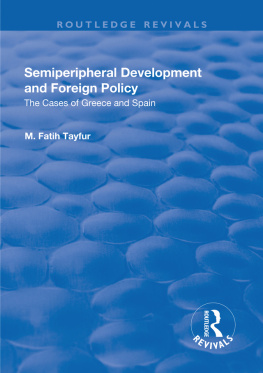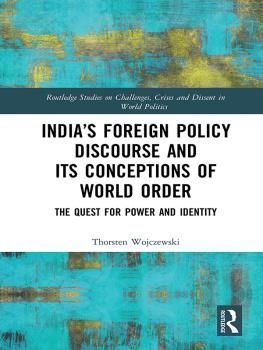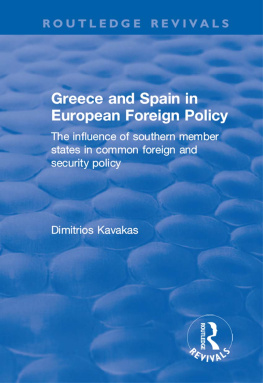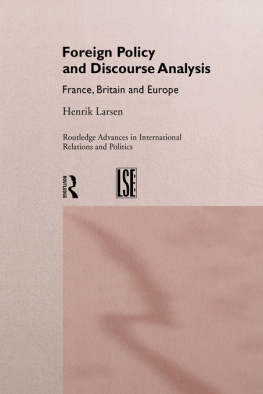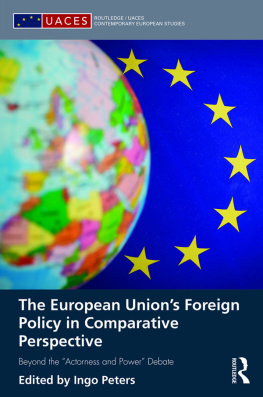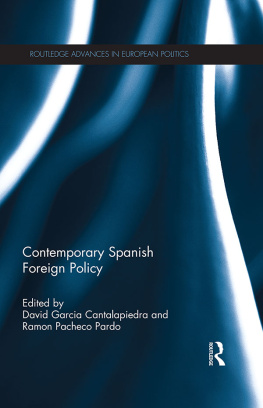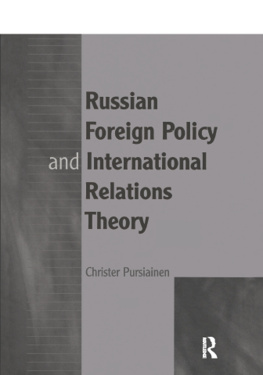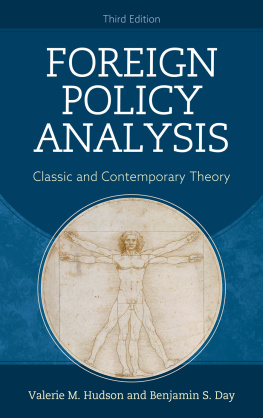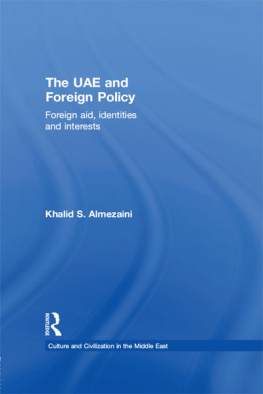SEMIPERIPHERAL DEVELOPMENT AND FOREIGN POLICY
To the memory of my mother and father
Semiperipheral Development and Foreign Policy
The Cases of Greece and Spain
M. Fatih Tayfur
Middle East Technical University, Ankara
First published 2003 by Ashgate Publishing
Reissued 2018 by Routledge
2 Park Square, Milton Park, Abingdon, Oxon OX14 4RN
711 Third Avenue, New York, NY 10017, USA
Routledge is an imprint of the Taylor & Francis Group, an informa business
Copyright M. Fatih Tayfur 2003
The author has asserted his moral right under the Copyright, Designs and Patents Act, 1988, to be identified as the author of this work.
All rights reserved. No part of this book may be reprinted or reproduced or utilised in any form or by any electronic, mechanical, or other means, now known or hereafter invented, including photocopying and recording, or in any information storage or retrieval system, without permission in writing from the publishers.
Notice:
Product or corporate names may be trademarks or registered trademarks, and are used only for identification and explanation without intent to infringe.
Publisher's Note
The publisher has gone to great lengths to ensure the quality of this reprint but points out that some imperfections in the original copies may be apparent.
Disclaimer
The publisher has made every effort to trace copyright holders and welcomes correspondence from those they have been unable to contact.
A Library of Congress record exists under LC control number: 2003105086
ISBN 13: 978-1-138-72234-7 (hbk)
ISBN 13: 978-1-315-19356-4 (ebk)
This book is based on my doctoral dissertation written between 1990 and 1995 at the London School of Economics and Political Science (LSE). However, I updated and revised the original work for publication between September 2001 and September 2002.
I could not have completed my dissertation without the support of two marvellous people: Professor Margot Light and Professor Peter Loizos of the LSE. I am deeply indebted to Professor Margot Light by whom I had the privilege of being supervised, and whose friendship, help, encouragement, advice and tolerance at every stage of this work were invaluable. I owe special thanks also to Professor Peter Loizos without whose support I might not even have begun doctoral studies at the LSE.
I would also express my gratitude and love to my wife Meltem Dayiolu Tayfur for her continuous support, unselfish assistance and patience during the writing and printing stages of this book. I also thank Mark Ferrara who edited the language of the manuscript.
I was privileged to receive a London School of Economics Scholarship and a CVCP Overseas Research Students Award, a Montague Burton Award, and a Convocation Trust Award. This study would not have been possible without their financial assistance between 1990 and 1995.
I would also like to thank Professor Fikret Grn, Professor Oktar Trel, Professor Fikret enses, Professor Gzin Erlat and Professor Cem akmak of the Middle East Technical University for all the support, encouragement, and friendship they extended from Ankara which I enjoyed over several years while in London writing the doctoral dissertation.
Finally, I must emphasise my deepest respect and gratitude to two institutions: The Middle East Technical University and The London School of Economics and Political Science. The Middle East Technical University in Ankara have always kept the windows of the universe open to me, even in the darkest days of authoritarianism. At the LSE, I accumulated not only knowledge but also discovered the magic of academe.
Foreign policy can be analysed in different contexts and at different levels. Since it stands at the crossroads of different issues and academic disciplines, and also bridges the "internal environment" with the "international system", explanations of foreign policy depend on how the researcher perceives the foreign policy environment and formulates the explanatory/analytical framework. In other words, depending on the context different approaches and variables may elucidate the conduct of foreign policy. Indeed, there are several ways to explain the external behaviours of states. This being the case, the study of foreign policy as a sub-field of IR cannot be confined to any one approach. On the contrary, the study of foreign policy often requires inter- and/or multi-disciplinary investigations. This means that foreign policy can be examined at different levels and may be viewed from varying perspectives in the social sciences. Students of FPA are therefore confronted with a phenomenon whose boundaries are quite flexible and which allows various theoretical frameworks of study (see, Hill and Light, 1985 and Light, 1994). Thus, the explanation of foreign policy can range from the childhood experiences of an individual leader to the characteristics of the international system, depending on the research framework and the goal of analysis. What influences and what explains foreign policy depends both on the situation at hand and on how the researcher perceives and formulates his/her explanatory framework. In other words, different approaches and variables are best to explain the foreign policy phenomena in different contexts because what determines foreign policy behaviour is a complex set of variables, and only one or several of them will become dominant in any given situation.
In this study I analyse the foreign policies of Greece and Spain between 1945 and the early 2000s in the context of the modern world-system approach. However, world-system analysis does not directly and systematically deal with foreign policy, but it does provide a "social totality" - a modern world-system - in which foreign policy is integral to the interaction between "a single world-economy" and "multiple political structures" (nation-states). Thus in this study, I consider foreign policy a function of the complex interaction between "internal/societal" and "external/systemic" and "political" and "economic" factors. Accordingly, I investigate the relationship between the foreign policies of Greece and Spain and the structure of the international system, the domestic economic and political structure of the states in question, and the external and internal economic and political elites.
Broadly speaking this is a study of the political economy of foreign policy. I analyse foreign policy in the context of both global and national levels of the organisation of power and production/wealth. I consider whether Greece and Spain belong to the debatable category of the "semiperipheiy" in the world-system hierarchy of states, and whether they followed "semiperipheral foreign policies" during the period under investigation. In chapters devoted to each separate country, I illustrate how the foreign policies of the two countries are related to their developmental patterns. I divide the period from 1945 to 2000s into two sub-periods, the first from 1945 to the mid-1970s, and the second from the mid-1970s to the early 2000s. This division corresponds to the reorganisation of the world power and production/wealth structures in the mid-1970s. In world-system analysis, these periods are termed the "expansion" and "contraction" periods of the world-economy respectively. This provides the background for the examination of the changes in the power-production/wealth structures of Greece and Spain between the "expansion" and "contraction" periods of the world-economy. I demonstrate how these changes in world and national power-production/wealth structures led to changes in the foreign policies of these countries. One important point is that, although Wallerstein is not as certain as he was about the perpetuity of cyclical processes of the modern world-system since the mid-1990s, this study assumes that the contraction period of the world-economy is continuing at present.

